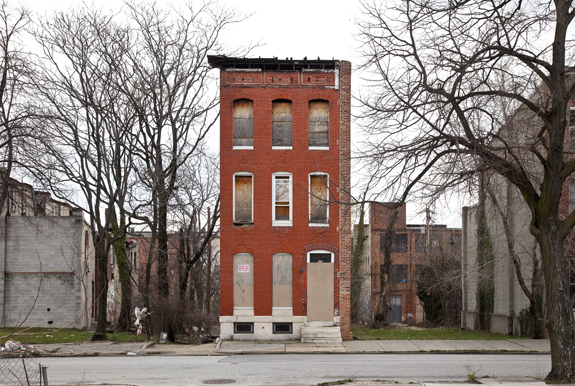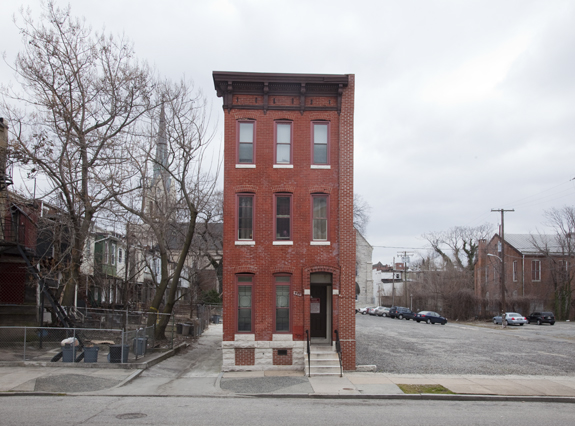
One of the architectural quirks of certain cities on the eastern seaboard of the U.S. is the solo row house. Standing alone, in some of the worst neighborhoods, these nineteenth century structures were once attached to similar row houses that made up entire city blocks. Time and major demographic changes have resulted in the decay and demolition of many such blocks of row houses. Occasionally, one house is spared — literally cut off from its neighbors and left to the elements with whatever time it has left.
My interest in these solitary buildings is not only in their ghostly beauty but in their odd placement in the urban landscape. Often three stories high, they were clearly not designed to stand alone like this. Many details that might not be noticed in a homogenous row of twenty attached row houses become apparent when everything else has been torn down. And then there’s the lingering question of why a single row house was allowed to remain upright. Still retaining traces of its former glory, the last house standing is often still occupied.
— Ben Marcin, Baltimore, Maryland, USA
